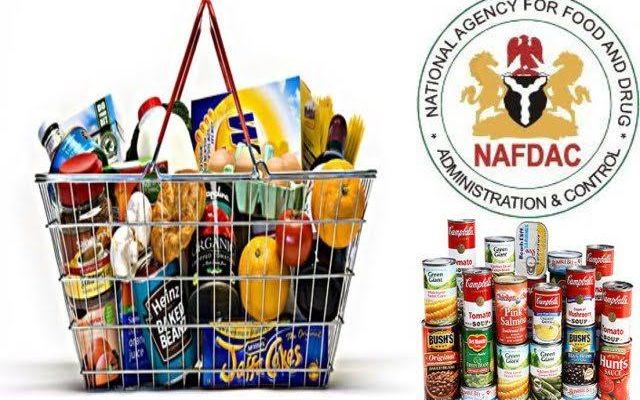The National Agency for Food and Drug Administration and Control (NAFDAC) has moved to end the rejection of made in Nigeria food products by the US and European Union as they have called for synergy amongst government agencies to stop this trend.
The food and drug regulator has urged all the regulatory agencies at the port to find a lasting solution, by ensuring Rapid Alert System for Food and Feed (RASFF) of border rejection by the EU of products originating from Nigeria.
The call is contained in a press statement signed by the agency’s resident media consultant, Mr Olusayo Akintola, on Sunday in Abuja, according to NAN.
The statement quoted NAFDAC’s Director-General, Prof. Mojisola Adeyeye, as decrying the persistent rejection of food and agricultural commodities from Nigeria by the two entities on account of poor quality.
Adeyeye was speaking on the quality and safety of export food trade at a virtual technical roundtable with government agencies like the Ministry of Agriculture, Foreign Portfolio Investments (FPIS) and the Standard Organization of Nigeria (SON), among others.
She expressed worry over the bad image the repeated rejection of commodities from Nigeria by the EU had caused the country, noting that the stakeholders meeting was quite suitable at this time.
What the NAFDAC Director-General is saying
Adeyeye said that the meeting was coming at the right time in view of the volume of food and agricultural commodities from Nigeria that were currently facing challenges at entry points in some European countries and the U.S.
She said, ‘’NAFDAC has a statutory responsibility to safeguard public health, through the execution of its mandate, we are charged with the responsibility to regulate and control the manufacture, importation, exportation, distribution and advertisement.
“We are also charged with the responsibility of monitoring sale, use of food, drugs, cosmetics, medical devices, bottled and packaged water, chemicals, that were generally referred to as NAFDAC regulated products.
“NAFDAC is designated as World Trade Organization/sanitary and phytosanitary enquiry point in Nigeria on food safety to facilitate international trade, and respond to enquiries on safety standards, regulations, and guidelines on food trade in Nigeria.’’
She noted that the challenges faced by Nigerian products meant for the export market include inadequate packaging and labelling which had caused a lot of product rejections in the global market.
Others are the presence of contaminants, such as pesticide residues, notoriously dichlorvos and other impurities, exceeding the maximum permitted level, she also stated.
Adeyeye explained that the international market was competitive in nature and only accepted products of high quality with relevant certifications and quality packaging that was environmentally friendly, to trade globally as well as stressing the need to address the rejection issue which has been recurring.
She said that NAFDAC had over the years intervened to assist Nigerian exporters meet the international regulations as it agreed that the products be subjected to 100% pre-export testing and products with satisfactory limits be issued health certificate before further EU verification at their border control points.
She also disclosed that NAFDAC had analysed the RASFF alert from the EU and observed that most rejected products by the EU were smuggled out and we’re not certified by the agency nor the Nigeria Agricultural Quarantine Services at the ports.
The NAFDAC boss, further said, ‘’We need to close the gaps and work together to prevent regulatory gaps being exploited by the unscrupulous traders and their collaborators. There must be a convergence for all regulatory activities.
“We have to do this, especially at the Ports of Exit, before we begin cleaning up and capacitating the honest operators and traders in the country.’’
“Based on the RASFF alert received from the EU, she said, NAFDAC had sensitized food processors, handlers and exporters through training programmes, workshops and seminars on the current food safety management requirements.
“Hazard Analysis and Critical Control Point (HACCP), Good Manufacturing Practices (GMP), Good Hygiene Practices (GHP) and Risk Analysis are crucial to ensure that products are safe and of good quality.
“To gain consumers’ confidence and acceptability from Nigeria, effective assessments of export products are very key, basic information that may be needed to be considered in the accompanying shipping documents include Certificate of Radiation.’’
Bottom line
NAFDAC had been at the forefront of accepting Nigerian food exports to Europe and other parts of the world and trying to put an end to the rejection of these products for failing to meet international standards.
This move is coming at a right time especially with federal government diversification policy in addition to NAFDAC’s collaboration with other regulatory agencies to ensure that this issue is resolved.














